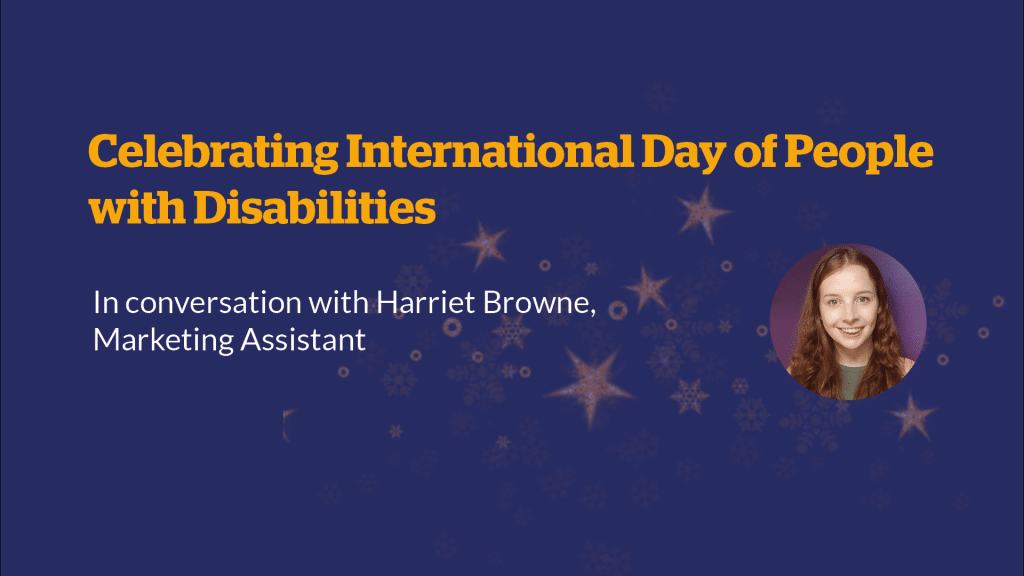Oxford International Education Group Celebrates International Day of People with Disabilities

Today marks International Day of People with Disabilities, the annual global celebration of people with disabilities. This year’s theme is ‘not all disabilities are visible’ so at Oxford International Education Group we wanted to help build awareness and also celebrate people with dyslexia. Harriet from our Marketing team shares her experience of growing up with dyslexia and how it is still present in her adult life.
What do you think of when you hear the word dyslexia? Despite 1 in 10 people in the UK having some form of dyslexia, it is often something that is overlooked when categorising a disability and still at times widely misunderstood. Therefore, it is important that we help to build awareness and educate people on the various types of dyslexia and how differently they can affect an individual.
To try to describe dyslexia in a sentence would be impossible. There is no one answer that covers the experience of having Dyslexia, as it varies so much from person to person. However, it centres around the way a person processes and remembers information and their phonological awareness, which is why some people with dyslexia may find it hard to recognize, decode or spell words. It can also be hard to diagnose dyslexia as it is not always obvious. For example, an individual may find it difficult to express their ideas or struggle with time management and organisation.
I was not diagnosed with dyslexia until I was 15 and was facing the prospect of GCSEs. I had always struggled with spelling and grammar. Whilst most children in my school were off learning languages I was studying extra English and Maths. I thrived at the more creative subjects such as Drama and PE, and despite my struggles, I even loved English. I also found it hard to retain information and it would take me a while to process new information and form a response. After I was screened for dyslexia and my results were explained I felt like I had a deeper understanding of how my brain functioned and processed information. This awareness meant I was able to develop more effective ways of working such as using a Dictaphone or software that would read my work back to me.
There are now different types of assistive technology that can help an individual with dyslexia such as digital recorders, speech recognition software, reading rulers and colour overlays. It is also encouraging to see that website plugins, such as those created by reciteme.com, are now being created to include these types of assistive aids.
As a graduate entering the workplace I didn’t think twice about my dyslexia and whether or not it was something I should be disclosing. However, as my career began to present me with more opportunities to write articles, I began to realise that my dyslexia was still there and that I had to adapt and learn how to cope with it in this new environment. I implemented tools such as Grammarly which provided a spelling and grammar check when F7 was not available. I have also learnt that it is okay to ask for help. There is no harm in having an extra pair of eyes read over a piece of work and their feedback will often be beneficial.
However, we’ve still got a lot of work to improve people’s understanding of dyslexia. One common misconception is that dyslexia affects an individual’s intelligence but this is entirely false. Some of the brightest and most creative people in the world struggle with dyslexia, including Stephen Hawking who said ’The challenge of dyslexia is something that you can make your own and make it a reason to be a winner in life’. After all, people with dyslexia have learnt to look at problems from a different and more creative angle and find new ways to conquer challenges. We must continue to build awareness about dyslexia and encourage those affected to talk openly about it. I don’t see it as a disability, more of an ability that builds upon my creativity and helps me to see what my strengths are in life.
If you would like to find out more about dyslexia and how you can provide support for someone who may be struggling then a great place to start is the British Dyslexia Association. A better and wider understanding of dyslexia can help to develop a more open conversation as well as create a more inclusive and diverse environment.
